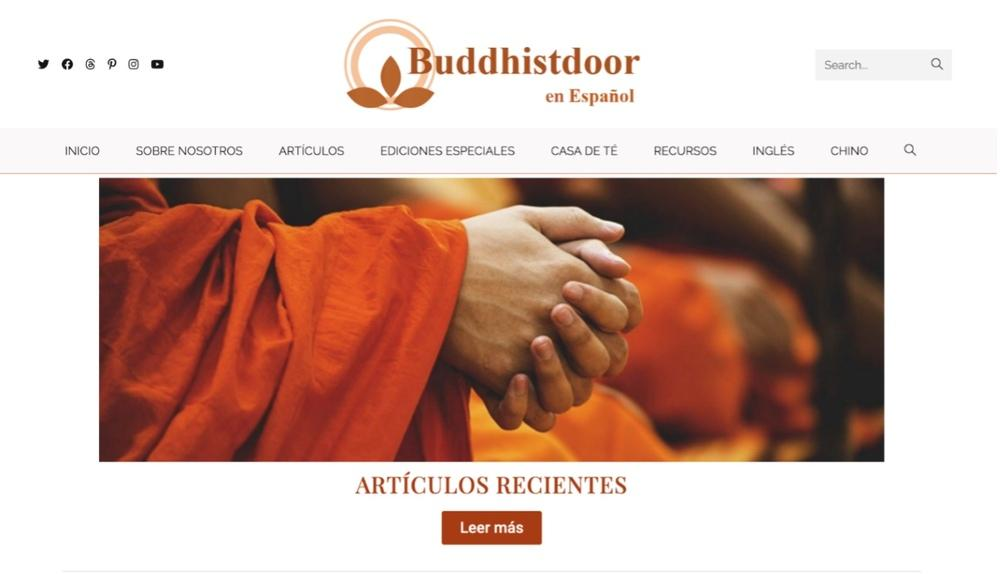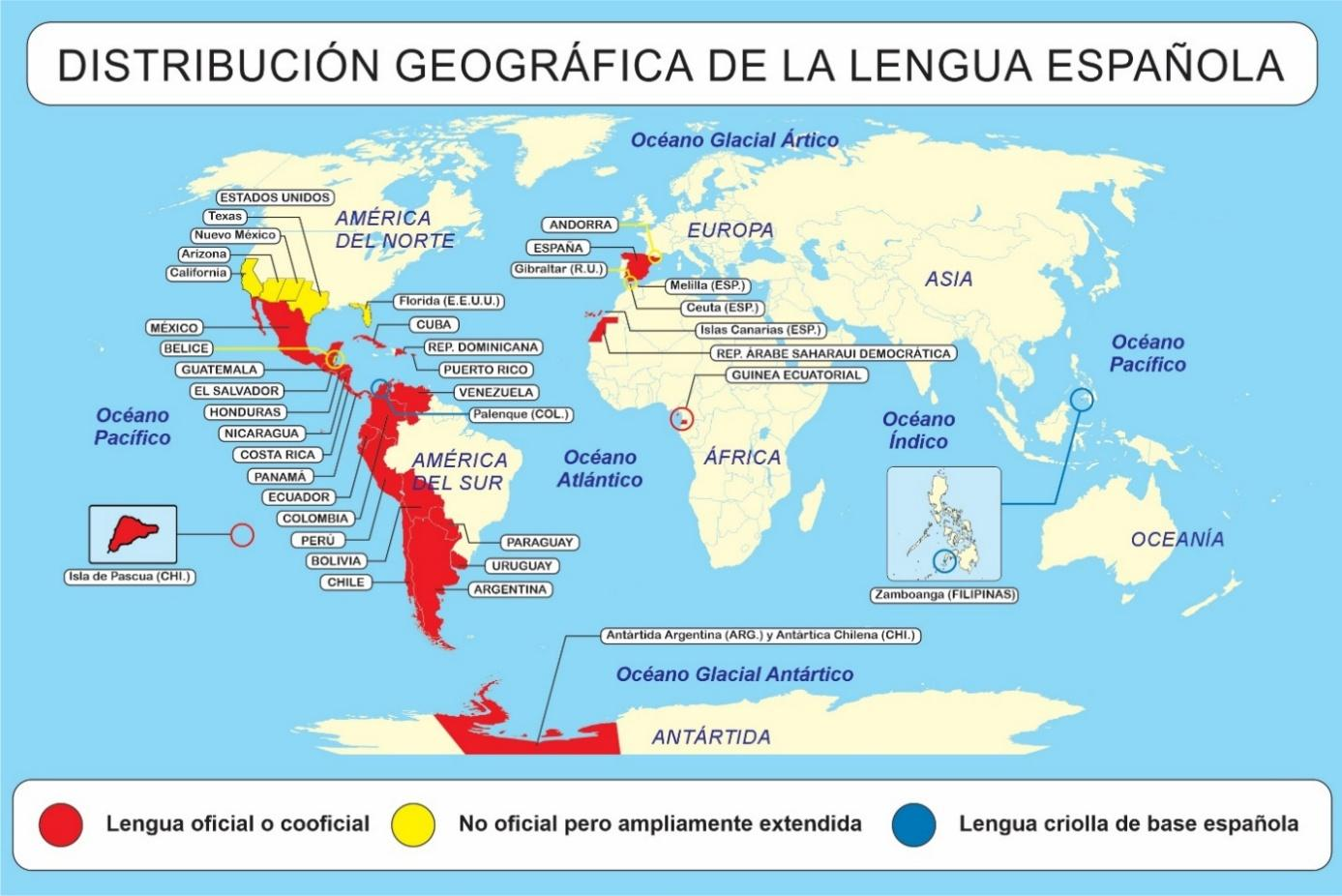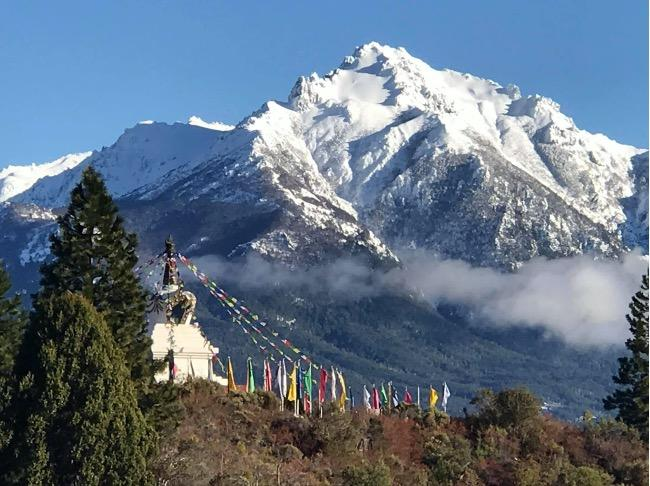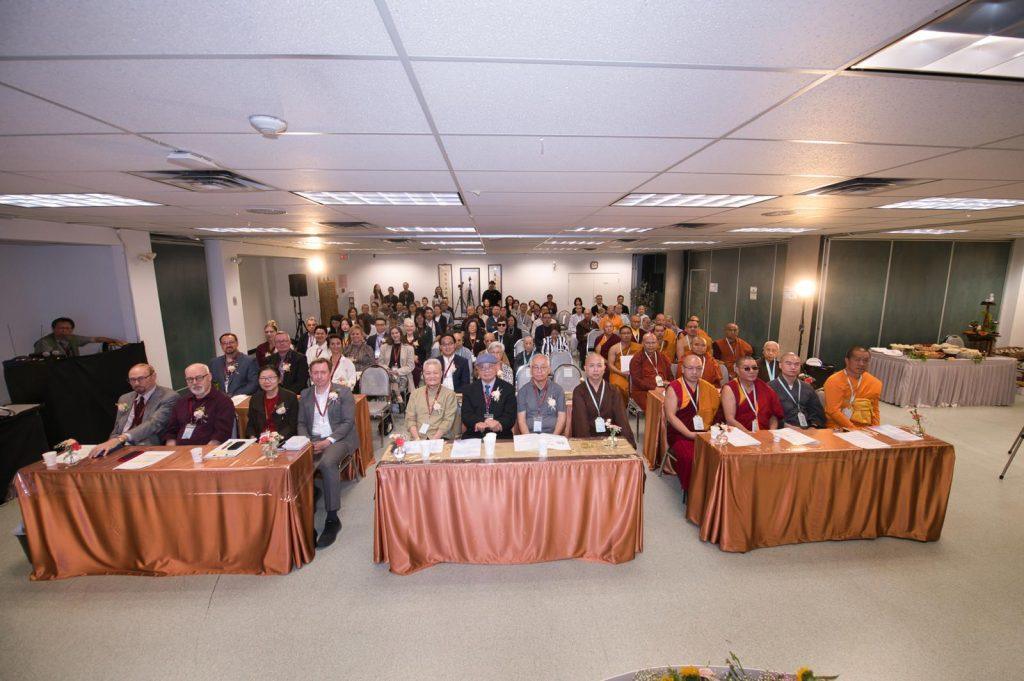Following is the text of the author’s presentation, entitled ‘The impact of Buddhistdoor en Español on the dissemination of Buddhism among Spanish-speaking communities in the digital age’, which he gave at the symposium marking the 30th Anniversary of Buddhistdoor Global, held in Vancouver, Canada, on 3 and 4 September 2025.
It is an honour to be here today to reflect upon a subject that not only connects cultures, but also transforms lives: the impact of Buddhistdoor en Español (BDE) on the dissemination of Buddhism among Spanish-speaking communities in the digital era. In a world where technology enables us – like never before – to transcend linguistic and cultural barriers, BDE has embraced the challenge of making the wisdom of Buddhism accessible and adapting it to the needs of the Spanish-speaking community, thus promoting its integration into everyday life.

Spanish as a global bridge
Before examining the impact of BDE, it is worth emphasising the importance of Spanish as an international language. While English predominates as the lingua franca in many contexts, Spanish has a considerable weight due to its scope and its influence. According to Ethnologue, it is the world’s second most spoken mother tongue, with 484 million native speakers. Including those who speak it as a second language, the total rises to 558 million, some 7 per cent of the global population.
Spanish is spoken in 21 countries and territories, encompassing landscapes as varied as the Andes, Spain’s Meseta Central, the Argentine pampas, and the Caribbean islands. What truly distinguishes it, however, is not merely its breadth of distribution but its remarkable uniformity, which enables clear and effective communication across borders. Unlike other languages marked by wide-ranging dialectal variations, Spanish has kept a high degree of coherence in its structures and expressions. This consistency creates a bond that transcends borders. More than a means of communication, Spanish is a cultural bridge and a shared symbol of identity connecting millions within a global community.

Furthermore, forecasts claim that the Spanish-speaking population will continue to grow steadily in upcoming decades, strengthening the language’s influence even more. This demographic reality offers a particularly fertile ground for the dissemination of Buddhist teachings within an interconnected and expanding community.

Buddhistdoor en Español: a unique platform
Within the vast Spanish-speaking world there exists a small yet vibrant Buddhist community – about 0.1 to 0.5 per cent of the population – that longs for access to authentic teachings and high-quality resources in its own language. BDE has emerged in response to this need, establishing itself as the sole international Spanish-language Buddhist platform dedicated to providing reliable teachings that are adapted to this audience.
For many years, access to authentic Buddhist teachings in Spanish was extremely limited. Although translations did exist, the richness and diversity of Buddhist traditions were often diluted or remained out of reach for Spanish-speaking audiences. Much of the available material – whether academic or educational – was published only in English, other modern languages, or the original tongues of Buddhism such as Pali, Tibetan, or Sanskrit. This created a linguistic barrier for those who wished to engage with the Dharma.
The roots of this situation run deep. Spanish colonisation established Catholicism as the predominant religion throughout Latin America, shaping a cultural and spiritual identity that left little room for other traditions. Moreover, with the exception of the Philippines, Spain did not colonise Asia, which limited its contact with regions where Buddhism flourished. For centuries, these circumstances kept Buddhism on the margins.
Paradoxically, the very factors that once limited its growth now make the ground fertile for its dissemination. Globalisation, the democratisation of many countries, the boom in digital connectivity, and a growing interest in Eastern philosophies have all created an environment ripe for Buddhism to take root.
In today’s world, Spanish speakers increasingly seek spiritual and philosophical responses to contemporary challenges beyond conventional religious paradigms. Buddhism is thus flourishing in regions where its presence was historically limited, making the Spanish-speaking world receptive soil for its growth and adaptation, and forging a significant presence for it in the Spanish-speaking cultural arena.
It is precisely in this context that Buddhistdoor en Español has taken on a crucial role. Since its launch in 2019, BDE has become the only global Spanish-language Buddhist platform devoted to offering accurate, trustworthy, and culturally-relevant teachings. By addressing the long-standing paucity of content in Spanish, it has established itself as an indispensable resource for the dissemination of the Dharma among Spanish speakers worldwide.
With precise materials that speak directly to the Hispanic culture, BDE provides content that resonates deeply with the Spanish-speaking community. Its global, accessible nature positions it as an essential tool for those who wish to explore Buddhism from a Hispanic perspective, attuned to the demands of modern life.
The platform embraces the diversity of Buddhist traditions – Zen, Tibetan, Theravāda, and modern reinterpretations – allowing readers to explore a wide range of perspectives and styles of practice in order to discover the approach that best meets and fits their needs.
Beyond its focus on Buddhist traditions, the platform stands out for the variety of topics that it covers. Its contents extend beyond doctrinal and spiritual issues, exploring how Buddhism intersects with the entire spectrum of human experience – art, literature, cinema, ecology, and gender issues. This demonstrates how Buddhist perspectives can illuminate contemporary themes and ensures that readers can relate the Dharma to relevant issues in their own daily lives.
BDE has a team of 40 contributors from 16 countries, reflecting its international nature and culturally diverse ethos. Monastics, lay teachers, scholars, and journalists alike contribute to this network, providing a multiplicity of perspectives and experiences that enrich the platform. This ensures that Buddhist teachings are not only presented with accuracy, but also that they are culturally relevant and accessible to the wide-ranging and multicultural audience of BDE.
Since its creation, the platform has published more than 900 articles and 130 videos and podcasts on an extensive range of subjects: interviews with teachers, Dharma talks, reviews, reports, community profiles, and analyses of classical and literary texts. Many readers have subsequently written to us, sharing that our articles inspired them to seek out Buddhist centres in their countries or to begin their own practice.
A particularly inspiring example is Cuba, where a Buddhist community has formed largely thanks to the platform. Individuals who previously lacked access to the Dharma have discovered in BDE a space for learning and connection, leading to the creation of study groups that now flourish in a context where Buddhism has only a tiny presence.
We have also published special editions on Buddhist education in Latin America and Spain, on women and Buddhism, ecology and climate change, Ibero-American literature, cinema, the state of Buddhism in various countries, and Chinese Buddhism. These initiatives enrich understanding and render the tradition more relevant to Spanish-speaking communities.
BDE distinguishes itself by striking a balance between accessibility and academic rigour. This approach enhances practitioners’ knowledge while elevating the level of Buddhist discourse in the Spanish-speaking world, encouraging deeper and more critical study.

Taking advantage of the digital age for global reach
The reference to the ‘digital age’ in this talk’s title is not incidental: it is essential to understanding the impact of BDE. The internet has enabled us to transcend geographical limitations and to reach a truly global audience. Through its website, social media, newsletters, and multimedia materials, BDE has made the Dharma accessible to Spanish speakers throughout the world.
Digital metrics reflect the platform’s growing scope among Spanish-speaking readers, confirming both the growing interest in the Dharma and the platform’s success in providing relevant and accessible content.
BDE’s global reach has democratised access to Buddhist knowledge in unprecedented ways. A reader in Buenos Aires can read an article written by a monk in Madrid, while a student in Mexico City can access the translation of a sūtra once available only in specialist libraries. Moreover, BDE contributors have participated in innovative books on Buddhist studies, now accessible in Spanish.
Its interactive nature has facilitated the creation of online communities on Facebook and WhatsApp – even in Cuba – as well as through initiatives such as Simpatizantes de Buddhistdoor en Español. These spaces allow practitioners to exchange ideas, feel part of a global movement, and overcome the sense of isolation often experienced in regions with little Buddhist presence.
BDE has also collaborated with study groups such as the Ibero-American Network for the Study of Buddhism (RIEB) in Argentina; ecological initiatives such as the Eco-Buddhism Laboratory in Chile; the Buddhist Film Festival of Catalonia; and universities and centres for interfaith dialogue. These alliances have produced material of significant value for our readership.
Impact on the Spanish-speaking community
As a cultural phenomenon, the platform’s impact is discernible on multiple levels within Spanish-speaking Buddhist groups and individuals. For beginners, it provides a reliable and solid introduction to Buddhism, helping them distinguish authentic teachings from misleading interpretations. For more seasoned practitioners, it is a source of inspiration, deeper learning, and connection with the global Buddhist community.
Scholars regard BDE as a valuable research resource, a platform for sharing their findings, and a forum for intellectual exchanges. Beyond the Buddhist sphere, it plays a crucial role in demystifying Buddhism for the general public by presenting it as a meaningful framework for addressing contemporary challenges.
Challenges and future opportunities
BDE’s history thus far reflects its commitment to disseminating the Dharma, although the future will inevitably present new challenges. The magazine must keep pace with change and continue to provide fresh content, adapted to the interests of new generations and delivered in innovative formats. Engaging young people is a priority, requiring proposals that resonate with their perspectives and interests, and that address the challenges they face.
Another pressing challenge is the need to balance accessibility with depth. In a world dominated by the rapid-fire consumption of information, BDE must keep producing engaging and contemporary material without compromising loyalty to the richness and complexity of Buddhist traditions.
Despite these challenges, BDE’s track record demonstrates an exceptional capacity to overcome these trials with creativity and vision. Its commitment to the Spanish-speaking community, and its skill in building bridges across cultures, ensure that its impact will continue to grow in the years to come.
Conclusion
BDE has become an indispensable platform for sharing and disseminating Buddhist teachings, contributing decisively to the growth and understanding of Buddhism in the Spanish-speaking world. By transmitting the Dharma in a clear and meaningful manner, it builds bridges between cultures, strengthens the Buddhist community, and transforms lives.
By cultivating this space of learning and connection, BDE preserves the essence of Buddhist teachings while laying the foundations for future growth, ensuring that new generations can engage with the Dharma in transformative ways. Ongoing support and resources will be essential to broaden this work and amplify its positive impact.
The influence of BDE on the dissemination of Buddhism has already proved decisive. It is well positioned to continue its development and to ensure that the light of the Dharma continues to illuminate the Spanish-speaking world.
* https://www.ethnologue.com/insights/ethnologue200/

----------------------
Daniel Millet Gil holds a degree in Law from the Autonomous University of Barcelona and has a Master's and a Ph.D. in Buddhist Studies from the Centre of Buddhist Studies at the University of Hong Kong. He received the Tung Lin Kok Yuen Award for excellence in Buddhist studies (2019). He is a regular editor and author for the Buddhistdoor en Español web platform, as well as the founder and president of the Dharma-Gaia Foundation (FDG), a non-profit organization dedicated to the academic teaching and dissemination of Buddhism in Spanish-speaking countries. This foundation promotes and sponsors the Catalonia Buddhist Film Festival. Additionally, Millet also serves as co-director of the Buddhist Studies program at the Rovira i Virgili University Foundation (FURV), a joint initiative between FDG and FURV. In the publishing field, he directs both Dharma-Gaia Editorial and Unalome Editorial. He has published numerous articles and essays in academic and popular science journals, which are available on his Academia.edu profile: https://hku-hk.academia.edu/DanielMillet.







